Keynotes by Esteemed guests
Warning: Attempt to read property "post_title" on null in /home/u190614336/domains/maritimeresearchcenter.com/public_html/wp-content/plugins/popup-anything-on-click/includes/shortcode/popupaoc-popup-shortcode.php on line 79
Warning: Attempt to read property "post_excerpt" on null in /home/u190614336/domains/maritimeresearchcenter.com/public_html/wp-content/plugins/popup-anything-on-click/includes/shortcode/popupaoc-popup-shortcode.php on line 80
Background:
The oceans and the freshwater systems are the primary regulators of the environment on Earth and we must generate significant knowledge and understanding of the huge water bodies that exist. The United Nations (UN) has declared this decade (2021-2030) as the decade of the ocean Sciences for Sustainable Development. Keeping this in perspective, the Maritime Research Centre (MRC), in partnership with the United Nations Educational, Scientific and Cultural Organization (UNESCO), held an extensive discussion around the proposed implementation of the UDA Framework in the Indian Ocean Region. The seminar was carried out in hybrid mode at the UNESCO Cluster office in New Delhi from 2 pm IST onwards. It was attended by experts from fields of the maritime security domain, government organizations, International organizations, the student community, and others.
The two institutions have decided to collaborate for research implementation in the maritime domain and UNESCO-allotted biosphere reserves in India and its neighbors. Our eminent speakers emphasized that the UDA Framework, which is being driven by the MRC, Pune is very relevant in today’s scenario to foster a blue economy in the IOR and MRC-UNESCO collaboration will be a very positive start. The eminent panel further reiterated that nations in the IOR will significantly benefit from the collaboration between MRC and UNESCO.
The former Education Minister of Mauritius, who has also served as the Director of UNESCO Dr. Armoogum Parsuramen said, “UDA Framework could provide unimaginable opportunities on multiple levels. The coastal communities and its associated stakeholders can be galvanized under the UNESCO-led initiative for which UDA Summer school initiative and field visits could be a great start.” He further suggested that setting up a Centre of Excellence under UNESCO’s guidance would be a more structured way to drive acoustic capacity and capacity building.
Further, during the workshop, Dr. (Cdr) Arnab Das, who is the Founder and Director of MRC, Pune, talked about various recognitions that the institution has received since its inception. He informed about the research areas of his technology-driven think tank. He informed the audience that MRC provides potential areas of joint work in various fields including water resource management, water quality management, sediment management, enhanced livelihood for communities, sustainable blue economy, underwater archeology, and revival of traditional knowledge across regions and sectors.
In addition to this, Dr. Bennor Boer, who is Chief of Natural Sciences at UNESCO India said that through MRC-UNESCO collaboration, the two institutions must focus on the mandate of the United Nations and pursue attaining the Sustainable Development Goals (SDGs) as all of them are all interconnected with each other. He further noted that they must mobilize science education and cultural education to achieve the SDGs.
This document broadly encapsulates key highlights of the discussion during the workshop. It will provide you with a textual glimpse of major talking points during the workshop and since it was addressed by eminent speakers, it will give you high-quality insights on the subject matter.

Former Deputy National Security Advisor and Former Defence Secretary Government of India
“To control the exploitation of the Indian coastline, the Indian Navy will have to play a big role since they are one of the key stakeholders of its oceans’ resources.”
- His Excellency (HE) Shekhar Dutt shared key insights on the strategic challenges and opportunities in the Indian Ocean Region (IOR).
- Protecting and sustaining the Indian Ocean Region (IOR) should be our highest priority. The companies which have recently, or in the past, spilled oil in the oceans must be sanctioned.
- We have somewhere irresponsibly handled seas and oceans and Maritime security is very much a part of that.
- The material that is used for creating ships to sail in the IOR depends largely on the economics of the ship.
- Until now, we’ve majorly spoken about the use of space but now is the time to begin underwater exploration. Far more exploration is possible of the underwater domain.
- One of the biggest resources available to us on earth is water and currently, it is shrinking.
- We need to have appropriate resources for carrying out research in the underwater domain if we want the ocean’s resources to be utilized well.
- Inland waterways are an extremely important mode of transportation but due to extreme weather conditions and lack of water resources, it has been impacted to a great extent.
- The capability of the sea and oceans to look after the needs of land has reduced due to excessive pollutants in it.
- To control the exploitation of the Indian coastline, the Indian Navy will have to play a big role since they are one of the key stakeholders of its oceans’ resources.
- With the increased use of liquid hydrogen, liquid ammonia, and other forms of renewable energy resources, India is on the path of protecting itself from energy crises, which have been majorly caused due to the recent Russia-Ukraine war crisis.
- There is a need to make India’s Inland Waterways navigable so that the transportation on these can be made far more reachable.

Former Diplomat,
Member of the Blue Economy Committee at FICCI
“The underwater domain awareness (UDA) is a new area of ocean research and therefore needs sincere focused attention. It will have to operate at the levels of academia, technology, business, finance, regulation, policy, and advocacy.”
- All societies seek to grow to address the challenges of underdevelopment and to seek prosperity and happiness.
- For arriving at the development standards of today, societies have made tremendous efforts and have exploited the earth’s resources.
- The size of today’s global economy is about USD 103 trillion, if we grow at about 3% per year, as projected by various economic institutions, the global economy will double in the next 22-25 years. This implies that we will add another USD 103 trillion in less than 25 years.
- Such growth will be highly resource-intensive. The biggest question is where will these resources come from. So far, the majority of resources came from the land, resulting in massive degradation of land resources. This can not continue.
- If we have to grow and also preserve/conserve the environment (earth’s ecosystem), we must drastically reduce the resource intensity of growth. It could be partially achieved by applying circular economy approaches. However, only a circular economy would not be enough.
- With the land resources depleting and deteriorating, there would be a greater emphasis on harnessing the oceans. Oceans have historically provided essential resources such as food, energy, transportation, and recreation and now we are approaching sea-bed mining, renewable energy, and marine biotechnology.
- Oceans can certainly provide more resources, however, their health is already in distress by way of pollution, acidification, loss of biodiversity, and warming. They may not be able to take any further degradation in their health. Therefore, while we can further expand the harnessing of the ocean resources, it must be done without hurting their health.
- For ensuring the conservation of the ocean’s ecosystem, we need to understand them better. So far our understanding of the ocean is largely limited to surface activities, whereas most of the critical problems faced by the ocean are linked to what is happening underwater.
- Therefore, the preservation of the ocean cannot be ensured without comprehensive underwater domain awareness (UDA), covering physical, chemical, biological, and geological aspects of the working of the oceans.
- The UDA is a new area of ocean research and therefore needs sincere and focused attention. It will have to operate at the levels of academia, technology, business, finance, regulation, policy, advocacy, and international cooperation.
- Given the complexity of the underwater domain awareness and its importance, the sooner we do it, the better. Otherwise, instead of seeking additional resources from the ocean, we may end up losing even the existing ones.
- Looking after the oceans has to be a collective global effort. Ocean waters and their fury do not respect national boundaries. Keeping this in mind, India defined its maritime framework through the concept of Security and Growth for All in the Region (SAGAR).
- In dealing with conservation matters, prevention is certainly better than cure. For instance, the most effective solution to plastic pollution in the ocean is by not throwing it in the first place.

Resident Representative of Climate Scorecard,
Milton US
“What the Maritime Research Centre (MRC) is doing for developing a systematic blue economy is very important and I would be more than happy to contribute to your endeavors of Underwater Domain Awareness (UDA) Framework.”
- Dr. Pandey’s keynote address revolved around how to sustain a blue economy to overcome challenges and find opportunities in the Indian Ocean Region (IOR).
- Dr. Pandey discussed the aspects of sea and ocean from the economic as well as climate change perspective.
- The Indian Ocean Region is very significant from every perspective, be it from maritime, security, blue economy, movement of the ship, pollutants, exploration, and research.
- The resources and aspects that we extract from our oceans and seas, including flora, fauna, and seaweeds, can be utilized for various means, including the production of medicinal substances for mankind.
- There is a need to quantify the assets which are available in the Indian Ocean Region (IOR) so that their value increases and they can be put to good use.
- Climate issues are receiving more significance for the right reasons.
- There is a need to extract valuable data so that it can be measured and a matrix can be created which would eventually help the policy-makers while they draft rules and regulations.
- We currently have a Chinese spy ship parked in Sri Lanka and that is a security concern for us. They are capturing every possible data in the Indian Ocean region and that further impacts the geopolitical relations of India-China.
- There is a need to develop partnerships and collaborate with international institutions. You may consider pitching your ideas at the T20 conference, which is part of the G20 global forum, and this year, India will take over the presidency of G20 nations.
- There is also a need to collaborate with corporates who are working in the domains of ocean framework, water governance, etc.
- There is a need to bring media on board to create and sustain outreach to larger masses.
- What the Maritime Research Centre (MRC) is doing for developing a systematic blue economy is very important and I would be more than happy to contribute to your endeavors of the Underwater Domain Awareness (UDA) Framework.
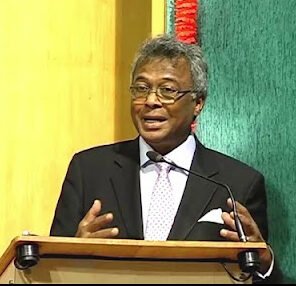
Former Education Minister Mauritius, Former UNESCO Director, and Chairman of Global Rainbow Foundation
“The UDA Framework provides a safe, secure, and sustainable growth model and is the appropriate tool for driving the maritime governance and mechanism in the Indo-Pacific region.”
- MRC’s collaboration with UNESCO is going to be very fruitful. UNESCO is an organization that can convene and gets people together in achieving a great objective.
- Dr. Parsuramen thanked Ambassador Anup Mudgal, who was India’s Ambassador to Mauritius, and lauded his work in the domain of blue economy and national security.
- In recent years, Underwater cultural heritage has been receiving increasing attention from the scientific community and the general public. For scientists, it is a valuable information source on ancient civilizations.
- UNESCO has started awareness activities about the underwater cultural heritage among the Members of the scientific community, heritage managers, and local communities.
- Our oceans are a source of fresh water and half the oxygen we breathe. It also influences our climate and weather.
- UNESCO is working to address the unprecedented environmental changes and is promoting ocean health via marine science.
- Mauritius has planned to make the blue economy the key pillar of its economic growth and development.
- Mauritius is thankful to India for providing all the technical support in its blue economy-related programs.
- “I am honored to be associated with the Maritime Research Centre, which is being led by a young leader (Ref- Dr (Cdr) Arnab Das). The UDA Framework being driven by the MRC, Pune is very relevant for UNESCO’s mandate, and the two organizations working together in the underwater domain will be a very positive start.”
- The technological tools being developed by the MRC will bring significant transparency to interactions with the water bodies in marine as well as freshwater systems.
- The nations of the Indo-pacific will greatly benefit from such a collaboration.
- The coastal communities in the Indo-Pacific region would need support from organizations such as MRC and backing the organization will ensure that correct resources and support is being delivered to these communities.
- The UDA Framework provides a safe, secure, and sustainable growth model and is the appropriate tool for driving maritime governance and mechanism in the Indo-Pacific region.
- One aspect that is commendable about the UDA Framework is that it not only addresses the concerns of the maritime domain but it also offers solutions to the freshwater systems.
- UNESCO may like to plan outreach, engage and sustain initiatives across the entire tropical region right from Africa to South Asia.
- The UDA Framework could provide unimaginable opportunities on multiple levels. The coastal communities and their associated stakeholders can be galvanized under the UNESCO-led initiative. The UDA Summer school and field visits could be a good start.
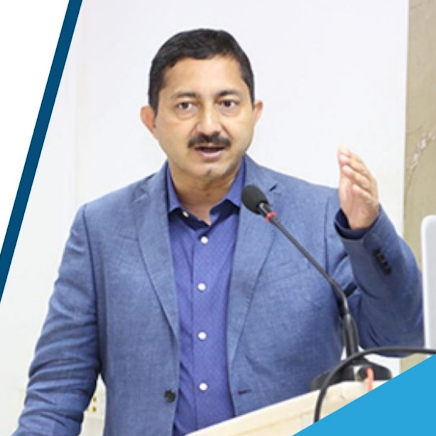
Founder and Director,
MRC, Pune
“The concept is digital oceans is very unique since is not just restricted to the marine ecosystem but also addresses the issues of freshwater systems.”
- Maritime Research Centre focuses on safe, secure, and sustainable growth for all in the tropical littoral water, especially the IOR.
- The concept is digital oceans is very unique since is not just restricted to the marine ecosystem but also addresses the issues of freshwater systems.
- On August 3, 2022, MRC signed an MoU with the Ministry of Earth Sciences to be their partner for the Digital Oceans initiative. We will be their back-end partner for data analytics in this initiative.
- The underwater domain awareness (UDA) framework is of great relevance in the tropical region because it faces unique challenges and opportunities of political, economic, military, and physical facets. They need indigenous efforts to be better explored.
- Various initiatives such as water resource management, water quality management, sediment management, and underwater domain awareness need to be given major emphasis for the sustainable growth of the blue economy.
- MRC is doing various projects on water resource management, water quality management, sediment management, and underwater domain awareness and we have carried out felid visits as well.
- The major stakeholders of the MRC are from the fields of Maritime Security, Blue Economy, Environmental regulators, and disaster management, and science & technology. All of them need to work together and that is where the real challenge lies.
- MRC provides potential areas of joint work in various fields including water resource management, water quality management, sediment management, enhanced livelihood for communities, sustainable blue economy, underwater archeology, and revival of traditional knowledge across regions and sectors.
- The UDA Framework can support big government initiatives including PM Gati Shakti, Make in India, SAGAR, Digital India, and Skill India.
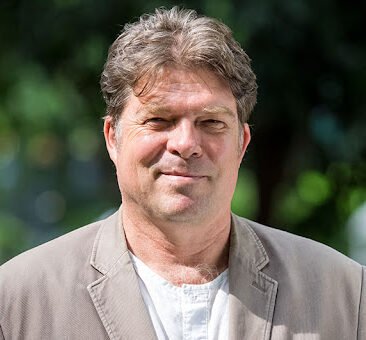
Chief of Natural Sciences,
UNESCO India
“Through the MRC-UNESCO collaboration, we must focus on the mandate of the United Nations and together to contribute achieving attaining the Sustainable Development Goals (SDGs). SDGs are all interconnected with each other. We must mobilize the sciences, education, and culture to achieve the SDGs.”
- Mr. Boer very kindly summed up the key takeaways from the entire workshop in a very simple yet valuable way.
- “We are using the resources of two-and-a-half planets. Are our children supposed to pay the price for it and their children even more?”
- Through the MRC-UNESCO collaboration, we must focus on the mandate of the United Nations and together to contribute achieving the Sustainable Development Goals (SDGs). SDGs are all interconnected with each other. We must mobilize sciences, education, and culture to achieve the SDGs.
- Each UNESCO biosphere embraces all of the SDGs. Our contribution should focus on real existing contemporary issues such as Climate Change, shrinking biodiversity, and environmental management.
- All of the agencies of the United Nations are trying their level best to engage less competitively and more in harmony with each other for the last three years.
- “Korean and German studies have found that microplastics have entered the human digestive systems. Brand new studies from the Frije University in Netherland have found that nano-plastics have entered the human bloodstream. If that’s not a wake-up call, what then is a wake-up call?”
- The land-locked nations are also contributors of plastic to the oceans, as plastics travel from cities to the rivers and ultimately into the oceans.
- Developing Centres of Excellence (CoE) on maritime and marine issues combined will be a very very interesting way forward.
- Over 97% of water available on planet Earth is in the oceans and only 2% of it is freshwater, out of which half of it is in the form of ice. There are centers and institutions around the world that are working to study the productivity of seawater.
- Speakers have mentioned various dimensions of security challenges between countries. I would just like to remark as a United Nations official there is no other way for peace than togetherness, including all countries.

Advisor- Water Resources at
NITI Aayog
“India has the largest coastline, which is 7,500 km and there are many unexplored areas such as seaweeds and shrimps. There is a need for exploration in these areas.”
- Mr. Avinash Mishra from NITI Aayog delivered his keynote address on strategic challenges and opportunities in the IOR.
- He noted that India has already submitted its claim to the United Nations Convention on Law of Sea that the length of its sea is not 2.27 million square kilometers rather it is 3.2 million square kilometers long.
- With India’s increasing population, we need to look at the resources and economic benefits that can be derived from the sea.
- For the Indian subcontinent, we need to know the rise in temperature in our ocean. On average, due to a 1-degree celsius temperature rise in our oceans, there has been a reduction in rainfall on land. It has led to a scarcity of water in various parts of the country.
- India has the largest coastline, which is 7,500 km long and there are many unexplored areas such as seaweeds and shrimps. There is a need for exploration in these areas.
- The underwater domain is not just confined to strategic importance but many other activities are there. To focus on the developing blue economy, it is essential to understand what type of habitat is required for a species to grow underwater and further extract it sustainably.
- NITI Aayog has developed a national framework for the maritime domain and we have received inputs from MRC founder Dr. (Cdr) Arnab Das. We are still in the process of consultations with the Ministry of Earth Sciences to deliver a more concrete framework for the sustainable economic framework for the oceans.
About UNESCO India- Section on Natural Sciences:
The Natural Sciences sector contributes to UNESCO’s mission to promote science for peace, sustainable development, human security, and well-being. UNESCO acts as a platform for generating and sharing ideas and promotes dialogue between scientists and policy-makers. It catalyzes innovative initiatives in the field of international cooperation in science.
Contact details: https://en.unesco.org/fieldoffice/newdelhi
Glimpses of the workshop conducted at the UNESCO Cluster Office, New Delhi


About UNESCO India- Section on Natural Sciences:
The Natural Sciences sector contributes to UNESCO’s mission to promote science for peace, sustainable development, human security, and well-being. UNESCO acts as a platform for generating and sharing ideas and promotes dialogue between scientists and policy-makers. It catalyzes innovative initiatives in the field of international cooperation in science.
Contact details: https://en.unesco.org/fieldoffice/newdelhi
Glimpses of the workshop conducted at the UNESCO Cluster Office, New Delhi




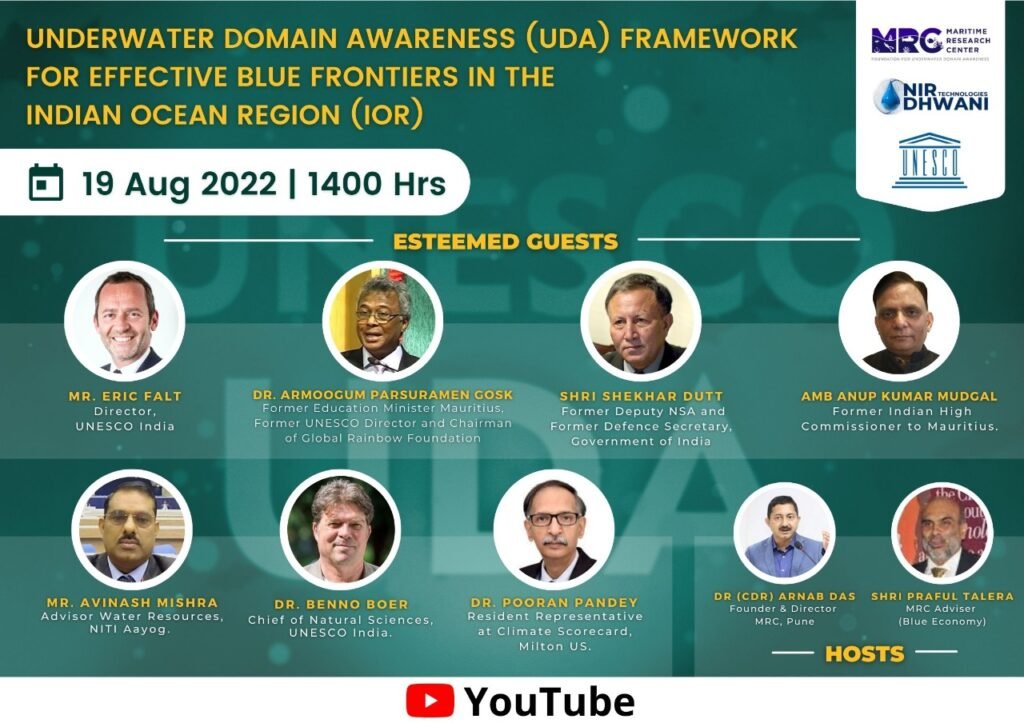


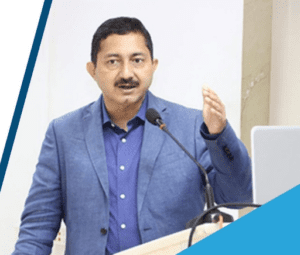
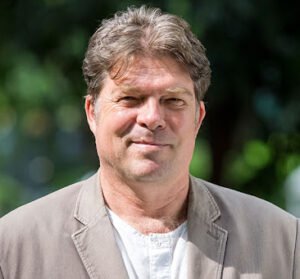

Leave a Reply